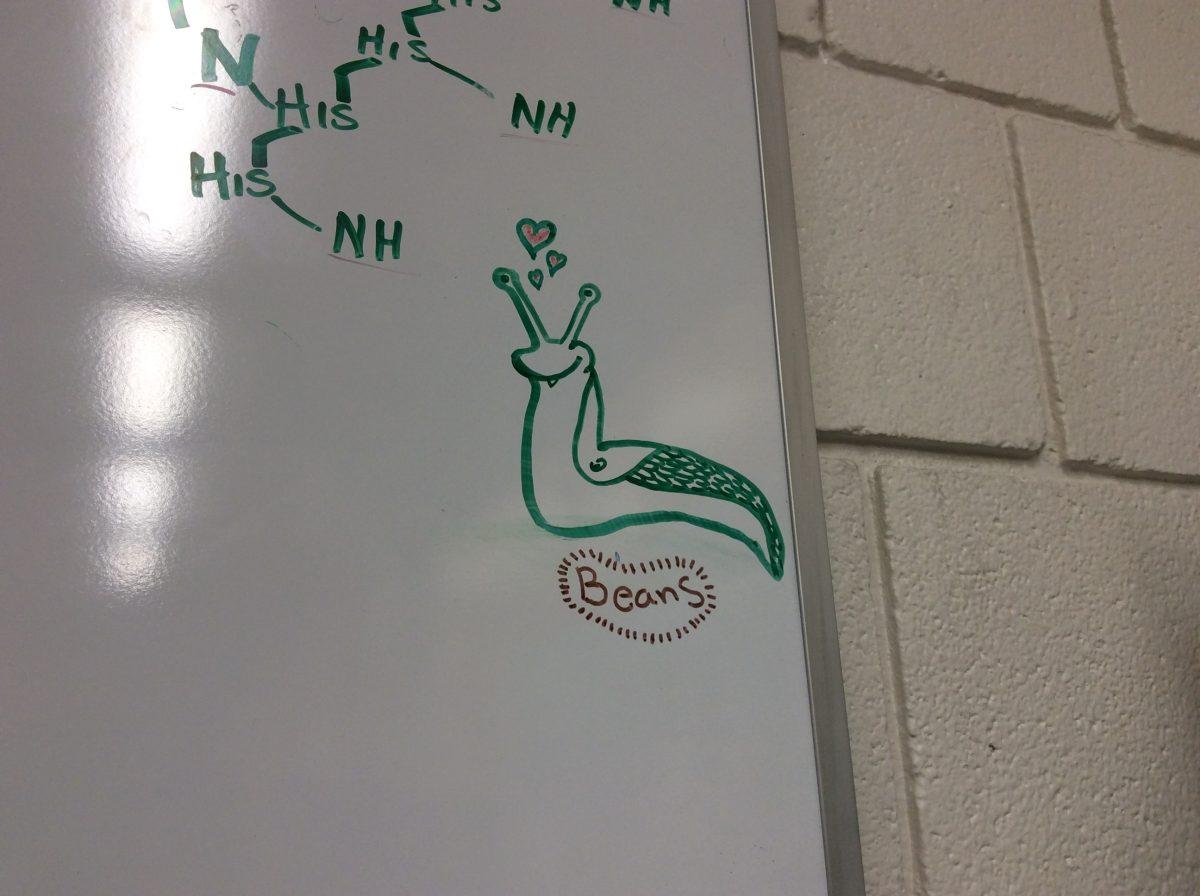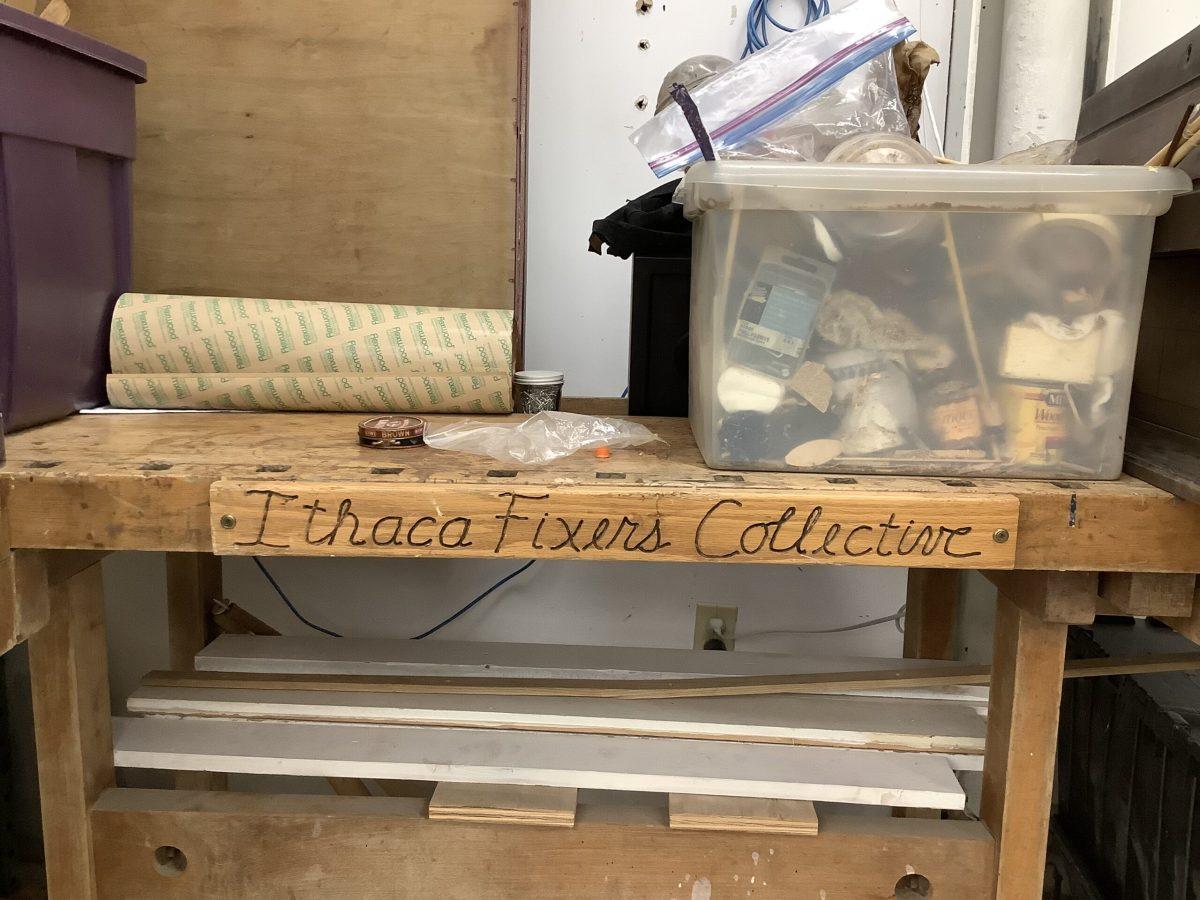“People have said that — people have said, ‘Oh, are you the slug guy?’” Smith said with a laugh. “And I just go, ‘Yeah, sure.’ I mean, if you work on slugs, people are going to identify you as the slug guy.”
Smith started his research career by looking at octopus suction cups and later transitioned to studying slugs. For Smith, slugs aren’t that interesting at first glance — though he did say that slugs are “cuter than people give them credit for.” Instead, Smith is interested in really any animal that can adhere or stick, and slugs have pretty sticky secretions.

“I’ve been interested in animals that produce glue for a while, but this glue is very interesting because it’s mostly a gel,” Smith said.
The slug that’s been the focus of Smith’s research recently has been the dusky arion slug, known by its scientific name as arion subfuscus. The dusky arion slug is originally native to northern and western Europe, but was introduced to the United States so long ago that they’re now considered a naturalized species in some parts of the country. The slugs are especially abundant in Ithaca, because they prefer damp forests — and the gorges provide a great, damp home.
What’s notable about the dusky arion slug, other than its orange color and considerable size, is its secretions. The dusky arion produces goop as a defense mechanism.
“If you poke this slug, the goop comes off the back and sets really quickly,” Smith said. “When I show people videos of that, they go, ‘Wow, that’s different stuff!’ It comes off and it looks like goop, but it turns into this elastic mass that sticks to everything.”

The gel-like glue that the dusky arion slug produces, Smith said, is interesting because it’s both stiff and stretchable, and is also mostly water. Gels aren’t usually very tough, and are either very soft or split easily — think something like jello. But the gel that the slugs produce is stiff, hard to stretch, and doesn’t break when it does stretch.
“Those properties are actually pretty ideal for a medical adhesive, which is why we’re interested in it, because the material is unusual and it has the properties you need if you want to make a medical adhesive,” Smith said. “So if we can figure out how it works, we can design an adhesive that works the same way.”
The development of a medical glue that can move with the human body without tearing or peeling is important — current medical options, like stitches or staples, don’t move with the skin. Smith said that people seemed to be intimidated by the field of bioadhesion, or adhesives that occur naturally. But with science moving toward a more interdisciplinary focus, the field could possibly start expanding.

“To understand an adhesive, you have to understand the biochemistry, you have to understand the mechanics, and you have to understand the whole organism and the biology of it,” Smith explained. “I think modern science is moving toward a more interdisciplinary focus and you’re seeing a lot more institutes pop up where there might be a number of people together who are engineers and biochemists, and they’re communicating more and working together. I think we’re seeing more of that, and people are getting better and better, and the field is growing.”













